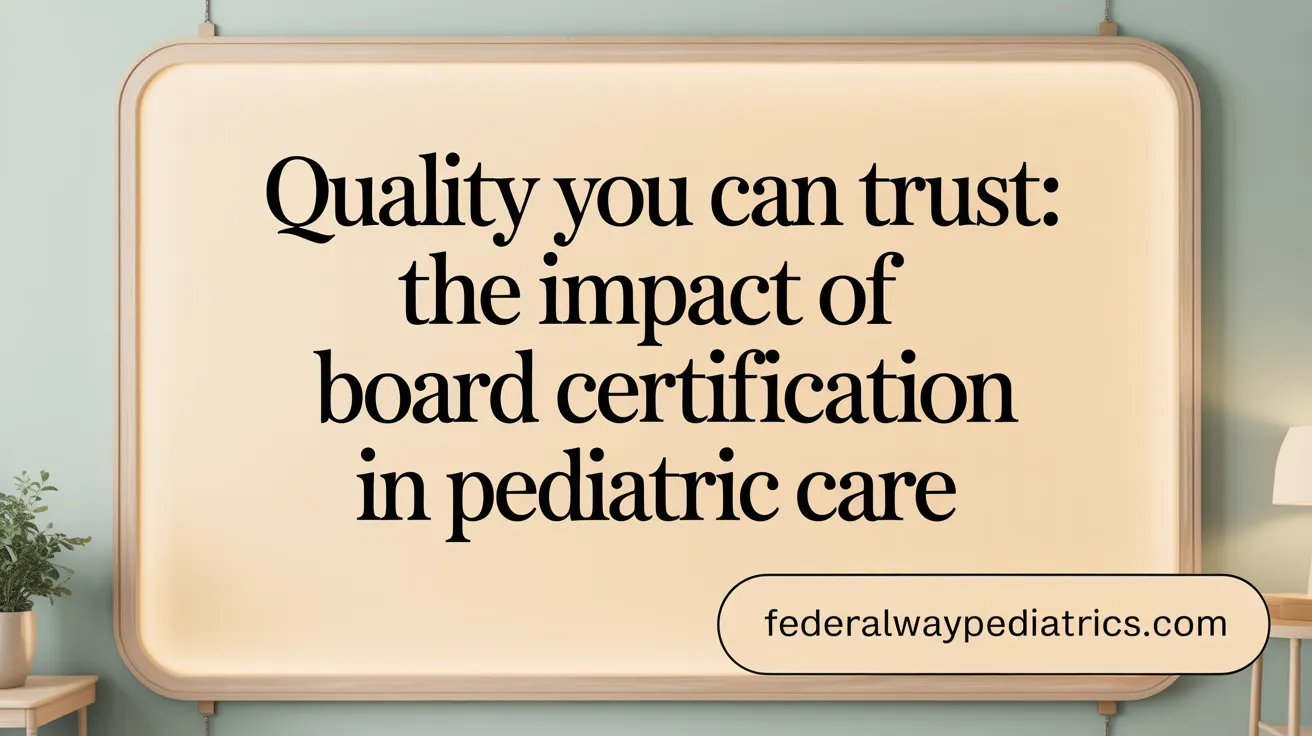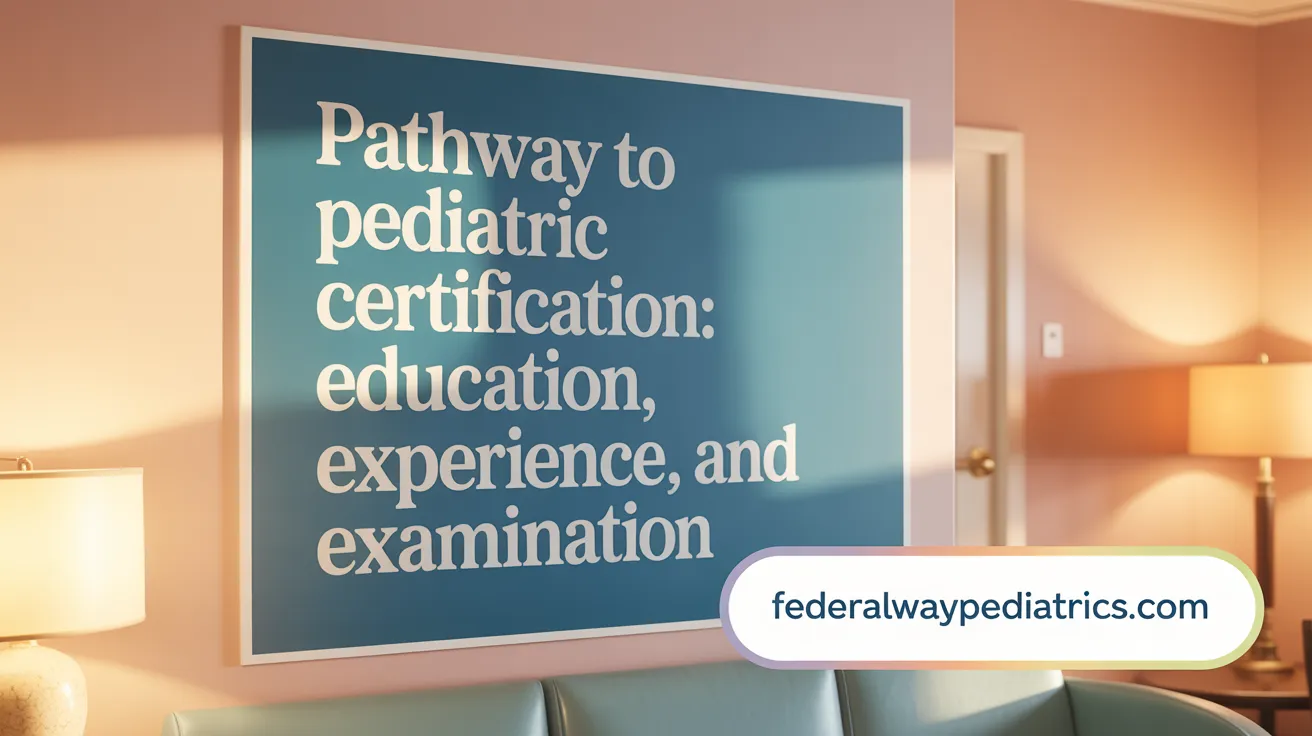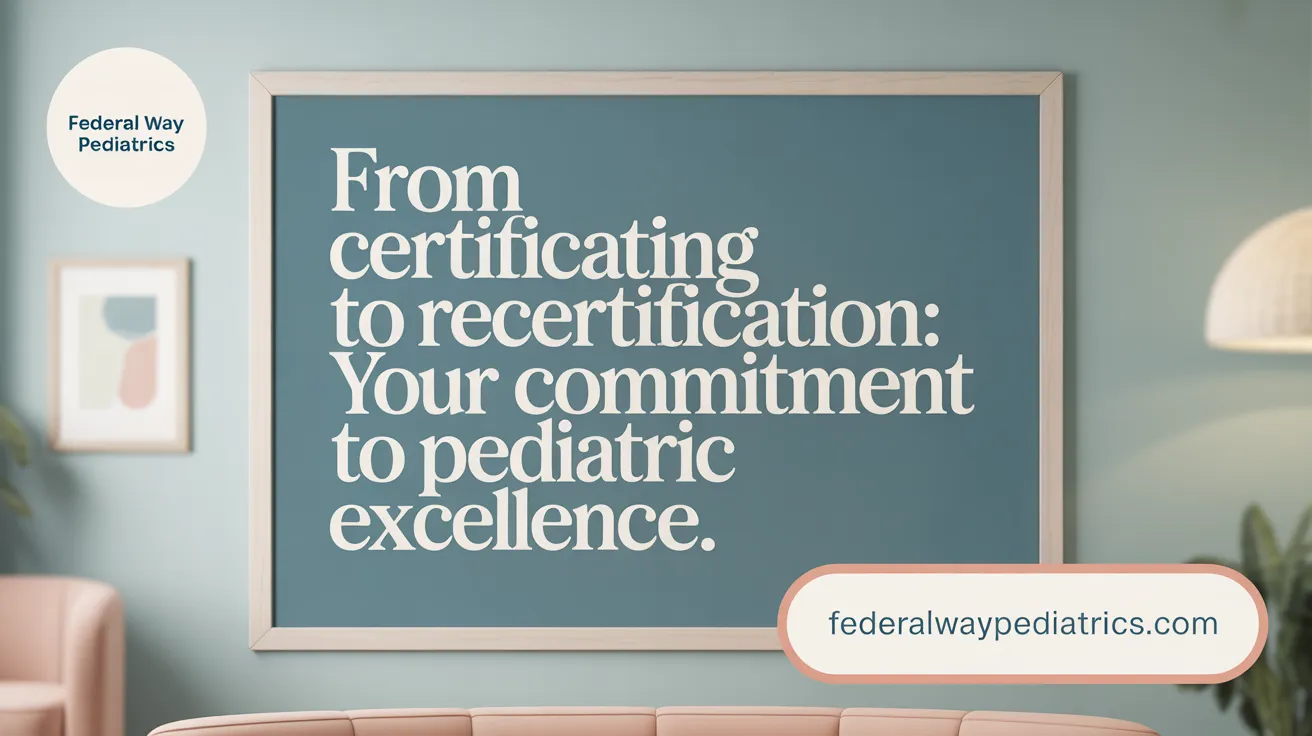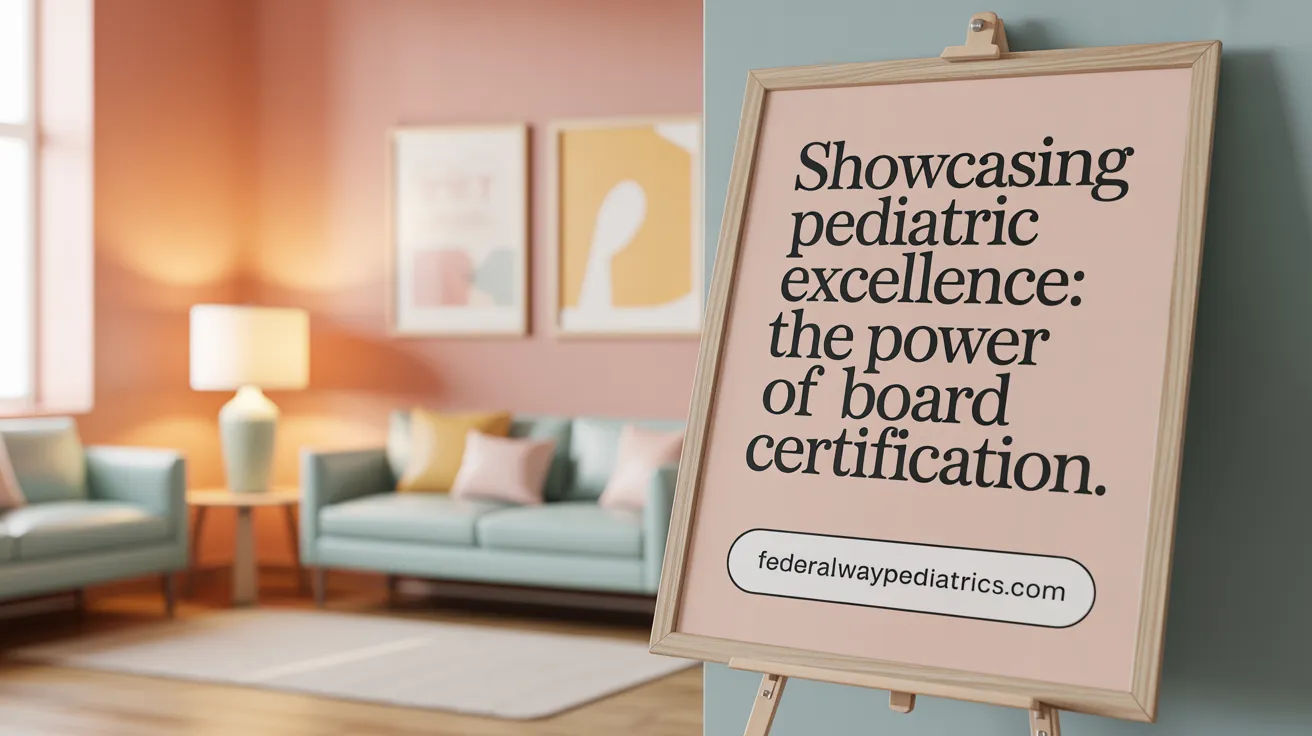Why Boards Matter in Pediatric Medicine
Board certification for pediatricians is much more than a title—it is a symbol of a physician’s dedication to delivering the highest standard of care to children. This certification assures parents and healthcare systems alike that the pediatrician has met rigorous training and assessment criteria and continues to advance their expertise throughout their career. In this article, we explore the significance of board certification, what credentials are involved, the path to achieving and maintaining it, and why continuous education is vital in pediatric healthcare.
The Significance of Board Certification in Pediatrics and Healthcare Quality

What is the significance of board certification in pediatrics and how does it impact the quality of healthcare?
Board certification in pediatrics, awarded by the American Board of Pediatrics (ABP), is a voluntary yet highly respected credential that signifies a pediatrician has met rigorous standards of expertise and knowledge. To earn this certification, a pediatrician must complete a comprehensive residency program, possibly pursue subspecialty training, and pass a demanding examination.
More importantly, maintaining certification involves participating in lifelong learning activities, such as the Maintenance of Certification (MOC) program. This process ensures that pediatricians stay current with the latest medical advances, guidelines, and best practices. It requires ongoing education, self-assessment, quality improvement projects, and periodic re-examinations every 10 years.
Research shows that pediatricians who are certified and actively participate in MOC tend to provide higher quality care. These physicians demonstrate improved clinical workflows, better adherence to evidence-based practices, and positive patient outcomes. Certification also reassures families that their child's healthcare provider is committed to continuous professional development and up-to-date medical practice.
Overall, board certification elevates the professionalism, accountability, and trustworthiness of pediatric healthcare providers. It sets a high standard for quality and helps ensure that children receive safe, effective, and current medical care.
Credentials Required to Become a Board-Certified Pediatrician

What credentials are required to become a board-certified pediatrician?
Becoming a board-certified pediatrician involves several critical steps, starting with strong educational credentials. Candidates must graduate from an accredited medical school that is recognized by governing bodies such as the Liaison Committee on Medical Education (LCME), the Royal College of Physicians and Surgeons of Canada (RCPSC), or the American Osteopathic Association (AOA). If the applicant attended a foreign medical school, they are required to obtain certification from the Educational Commission for Foreign Medical Graduates (ECFMG) or the Medical Council of Canada.
Once educational prerequisites are met, the next step is completing a three-year accredited residency in pediatrics. This training is essential for gaining the practical skills needed in pediatric care and must be verified by the residency program director.
Credentialing also requires holding a valid, unrestricted medical license in the United States or Canada. This license confirms that the physician meets the legal requirements to practice medicine in their respective jurisdiction.
The final credentialing milestone is passing a comprehensive certification exam. This exam, typically a one-day test, covers all vital aspects of pediatric healthcare and demonstrates the physician's knowledge and clinical competence.
For subspecialty certification, additional steps include completing specialized fellowship training and passing subsequent exams. These requirements vary depending on the particular subspecialty.
Maintaining certification involves ongoing education, self-assessment activities, and license renewal, ensuring pediatricians stay current with evolving medical standards and practices.
The Board Certification Journey: Obtaining and Maintaining Credentials

What is the process for obtaining and maintaining board certification in pediatrics?
Becoming a certified pediatrician starts with completing an accredited residency training program in pediatrics. After successfully finishing this training, physicians must pass a comprehensive certifying exam administered by the American Board of Pediatrics (ABP). This initial step verifies that the pediatrician has acquired the necessary knowledge and skills in general pediatrics.
Once certified, the journey does not end. Pediatricians need to keep their credentials active through a process called Maintenance of Certification (MOC). MOC is a lifelong commitment to staying current and competent in pediatric practice.
The certification cycle typically spans 10 years, with specific requirements in each 5-year segment. During this period, pediatricians participate in various activities such as self-assessment, practice improvement projects, and periodic exams. They must also fulfill requirements like earning credits in self-assessment (Part 2), engaging in quality improvement (Part 4), and paying fees.
The ABP offers tools like the Portfolio to help physicians monitor and manage their progress, track requirements, and schedule exams. It is essential for pediatricians to submit accurate details about their medical license, practice history, and legal records during this process. Overall, certification is a reflection of ongoing dedication to professional excellence.
Maintenance of Certification (MOC) process
MOC involves several ongoing activities designed to promote lifelong learning and ensure clinicians remain updated in their field. These activities include self-assessment modules, quality improvement projects, and periodic exams every 10 years.
Participants earn points based on activities completed, which contribute toward fulfilling their MOC requirements. For example, self-assessment modules (Part 2) include online quizzes and evaluation exercises that test current knowledge.
In addition to individual assessments, pediatricians are encouraged to engage in practice improvement initiatives to enhance patient outcomes. These efforts are verified through participation in projects and documentation within the ABP Portfolio.
The MOC cycle also involves periodic testing, which is often conducted online through platforms like MOCA-Peds. Successful completion of these activities signifies ongoing competence and commitment.
Role of lifelong learning and recertification
Lifelong learning is central to maintaining certification. Pediatricians are expected to engage in continuous education, self-assessment, and quality improvement activities throughout their careers. This ongoing process ensures they stay up-to-date with evolving medical knowledge, new treatments, and best practices.
Recertification through the ABP demonstrates a dedicated effort to uphold high standards of care. It reassures parents and patients that the pediatrician maintains their expertise and professionalism.
In summary, the pathway to becoming and remaining a certified pediatrician involves a structured process of initial training, examination, and continuous educational activities. The goal is to foster lifelong learners committed to excellence in child healthcare.
The Importance of Continuous Education and Self-Assessment for Pediatricians

Why are continuous education and self-assessment important for pediatricians?
For pediatricians, staying current with the latest medical information and treatment approaches is essential. Continuous education ensures they keep up with ongoing research, new guidelines, and evolving standards of care. This commitment to lifelong learning helps pediatricians deliver effective, evidence-based treatments that improve child health outcomes.
Self-assessment plays a crucial role in professional growth. It allows pediatricians to evaluate their own skills, knowledge gaps, and practice patterns. Recognizing areas for improvement helps guide targeted learning, making education more efficient and relevant.
Tools like Individualized Learning Plans (ILPs) further support this process. ILPs enable physicians to set personalized goals, select specific learning activities, and track progress over time. This deliberate, goal-oriented approach enhances skill development and sustains motivation.
Training in self-assessment is necessary because physicians can often misjudge their own competencies without external input. Without objective evaluation, gaps in knowledge may go unnoticed, impacting patient care. Ongoing education and self-assessment work together to uphold high standards of practice.
In summary, continuous education and self-assessment foster a culture of lifelong learning. They help pediatricians maintain their certification, adapt to medical advances, and most importantly, provide better care for children—the core mission of pediatric practice.
| Aspect | Description | Additional Notes |
|---|---|---|
| Role of ongoing learning | Ensures pediatricians stay updated with new medical advances | Essential for delivering current, evidence-based care |
| Self-assessment benefits | Identifies strengths and areas for improvement | Guides targeted professional development |
| Use of ILPs | Customizes learning goals and tracks progress | Promotes deliberate and efficient self-directed learning |
Adopting these practices not only helps physicians maintain their certification but also improves patient safety and health outcomes by ensuring clinicians are knowledgeable, skilled, and current in their field.
Board Certification as a Mark of Pediatrician Expertise and Commitment

How does board certification reflect a pediatrician's expertise, credibility, and commitment to child healthcare?
Board certification signifies a pediatrician’s advanced knowledge and skills in child healthcare by confirming they have completed a comprehensive, accredited training process, including a residency, and possibly a fellowship in a pediatric subspecialty. Passing a demanding examination demonstrates their mastery of core competencies in pediatric medicine.
This certification also serves as a credible marker of a pediatrician’s professionalism. It assures parents, hospitals, and insurance providers that the doctor adheres to high standards of practice, continuous learning, and quality improvement. These certifying achievements are validated and publicly accessible through trusted online platforms, such as the ABP website.
Furthermore, staying certified involves ongoing education and regular participation in the Maintenance of Certification (MOC) activities, which include self-assessment, practice improvement projects, and periodic exams. This lifelong learning process underscores the pediatrician’s dedication to keeping up with current medical advances and best practices.
While many hospitals may not require certification for initial credentialing, most value and recognize it as a sign of a physician’s expertise. Some institutions mandate recertification, ensuring that pediatricians maintain their skills and professional standards.
In essence, board certification is a clear indicator of a pediatrician’s expertise, professionalism, and unwavering commitment to providing the highest level of care for children. It reassures families and healthcare institutions that the pediatrician is dedicated to delivering safe, effective, and up-to-date pediatric healthcare.
Why Choosing a Board-Certified Pediatrician Matters
Selecting a board-certified pediatrician offers parents and caregivers confidence in the quality and safety of the healthcare their children receive. This credential is a testament to the pediatrician’s rigorous training, assessed competencies, and ongoing commitment to staying updated in a rapidly evolving medical field through continuous education and self-assessment. Board certification, administered by reputable organizations such as the American Board of Pediatrics, ensures a pediatrician consistently meets high standards of knowledge, professionalism, and patient care. Ultimately, these credentials serve as a vital benchmark reflecting not only expertise but also the dedication of pediatricians to supporting the health and well-being of children throughout their careers.
References
- What is Pediatrician Certification?
- Credentialing
- FAQs | ABP Parent Outreach - Board Certified Pediatricians
- Certification Matters | American Board of Medical Specialties
- Maintenance of Certification: Myths, facts, and FAQs
- Maintenance of Certification
- What is Pediatrician Certification?
- Admission Requirements
- Credentialing
